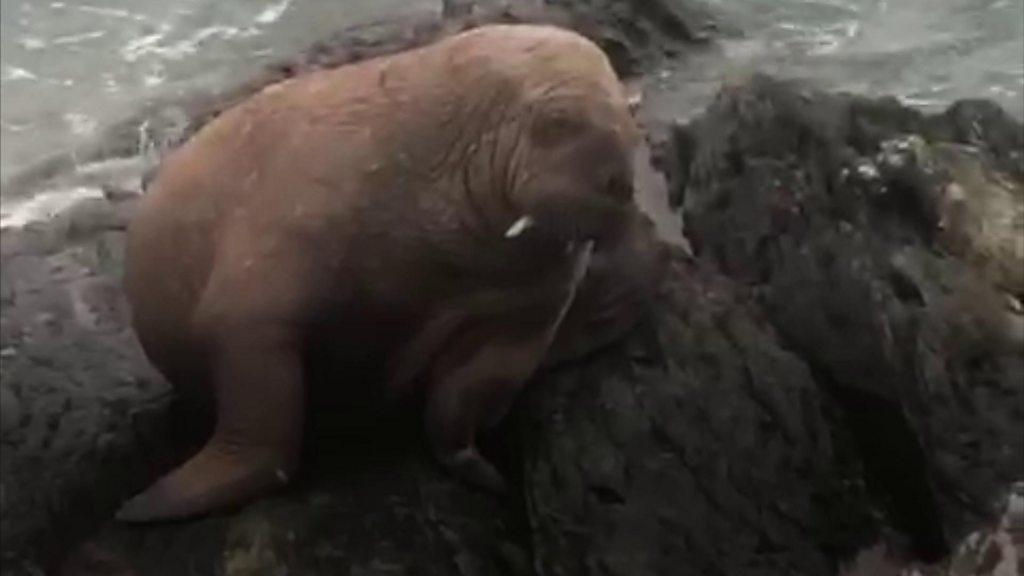Isles of Scilly: Walrus Wally no longer welcome
- Published
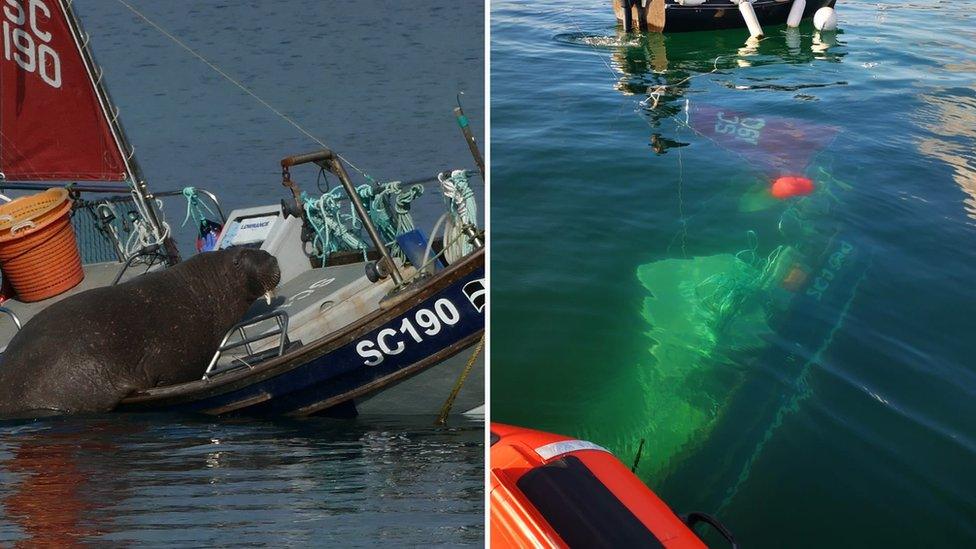
Humane deterrents are to be used to try and stop Wally entering the harbour where he sunk a fishing boat
An action plan has been agreed to entice a walrus away from a harbour where he has caused damage put at thousands of pounds.
The animal, called Wally, has sunk or damaged a number of vessels on St Mary's, in the Isles of Scilly since arriving in June.
He will be deterred using "approved humane deterrent methods".
Groups involved said he poses "huge risks to himself, livelihoods and potentially human safety".
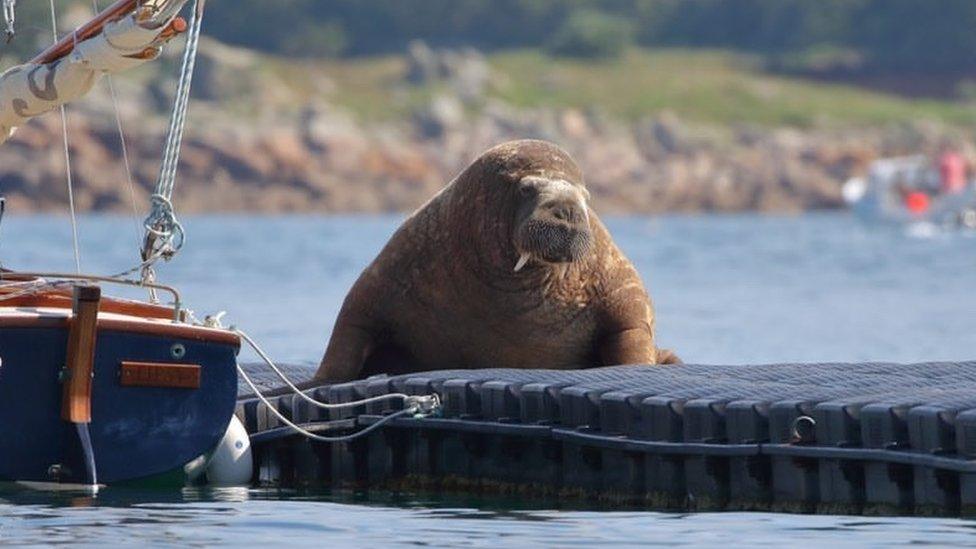
Wally, who has travelled thousands of miles, finds a resting place on a pontoon
Boat users are also being asked to "discourage him from getting on board" and to "take steps to physically prevent access".
The walrus, a species more commonly found in the Arctic, has travelled about 2,500 miles (4,000km) along the coast of western Europe including Wales and Cornwall over the last four months.
Wally, thought to be about four years old, was even spotted off Spain and has made headlines around the world.
A number of working and pleasure boats on the islands of St Mary's and St Martin's have been sunk or damaged by the walrus.
British Divers Marine Life Rescue (BDMLR) has worked with a number of organisations including conservation groups, Devon and Cornwall Police, RNLI, and the harbour authority on the plan to entice Wally away from the harbour on St Mary's, the largest of the island group 28 miles (45km) off Cornwall.
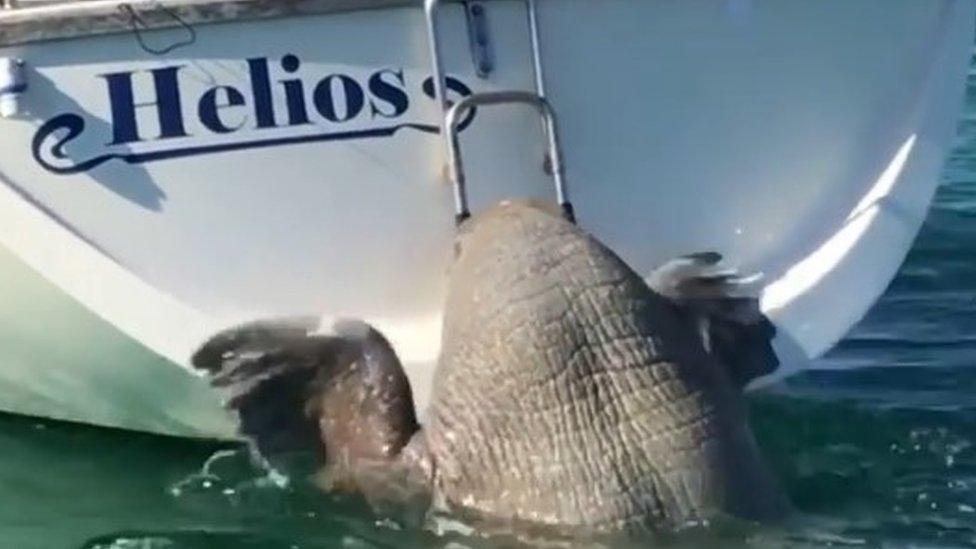
Wally looks for a berth for the night off Porthcressa beach
Their statement said: "Unfortunately, his presence in a commercial harbour within an island community is posing huge risks, first to himself, and to livelihoods but potentially human safety."
"He may prevent emergency response vessels from being immediately operational or cause serious injury or worse if he capsizes a boat with people on board."
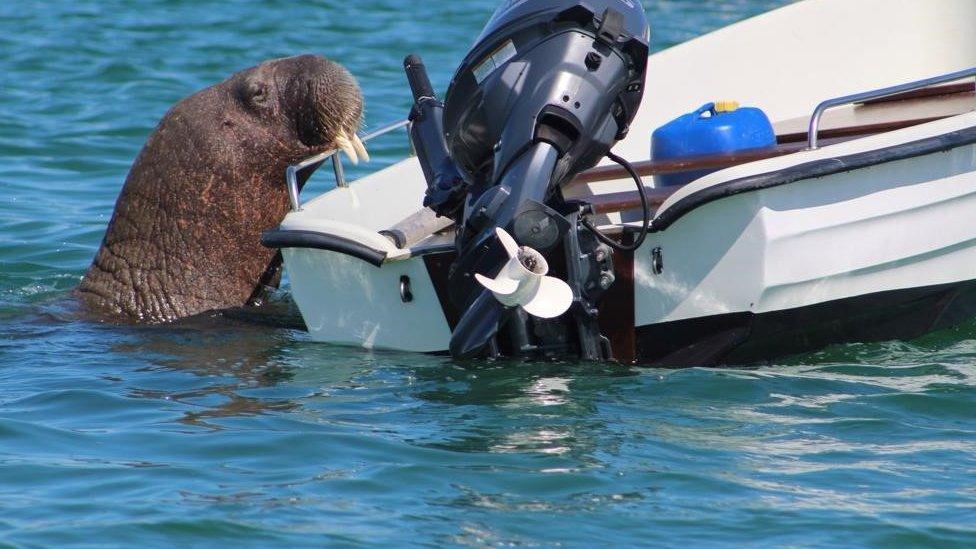
Wally's adventure has included stops in Ireland, Wales, Cornwall, France, Spain and now the Isles of Scilly
Dan Jarvis from BDMLR said: "It is causing a lot of angst in the community, especially for those whose boats have been damaged.
"It is becoming a really big issue in that harbour and we need to do something to discourage him from being in it."
After consulting with the National Atmospheric and Oceanic Administration in Alaska, measures being considered are barriers to stop him boarding boats, and acoustic deterrents above and below water.
"No-one has ever been in this situation in this country before, we don't have animals that are this big. It is extremely unique," Me Jarvis said.
"The welfare of the animal and the safety of people are paramount.
"It is hoped that by discouraging him from being around the inhabited islands, he will choose a more secluded wild site, and that he will soon be rested enough to continue back north to his native Arctic."
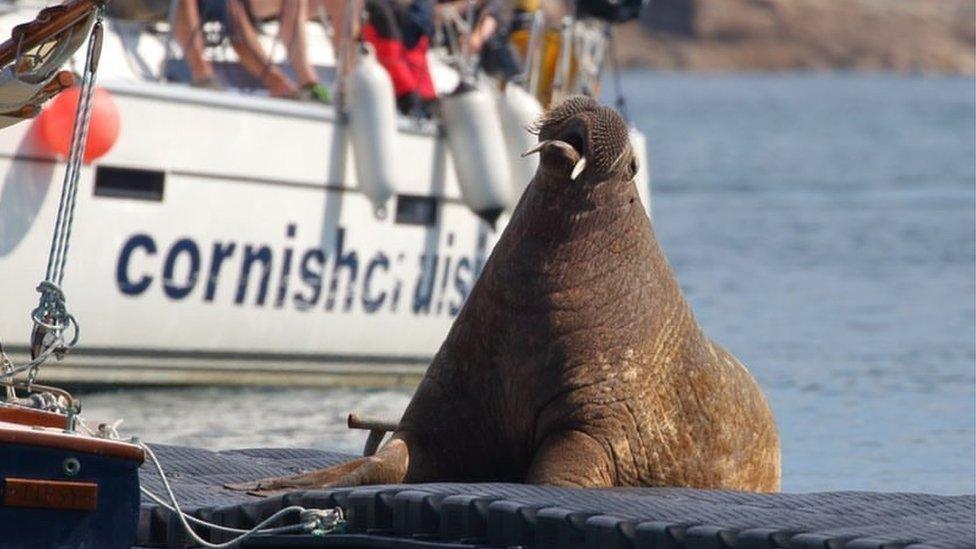
In Tenby, Wales, Wally reacted to airhorns to move him off the RNLI lifeboat slipway, but he became used to these.
Capture and relocation was "not warranted" said Mr Jarvis and would be an "extremely difficult and potentially dangerous option for the walrus and for any handlers involved".

Follow BBC News South West on Twitter, external, Facebook, external and Instagram, external. Send your story ideas to spotlight@bbc.co.uk, external.
- Published25 June 2021
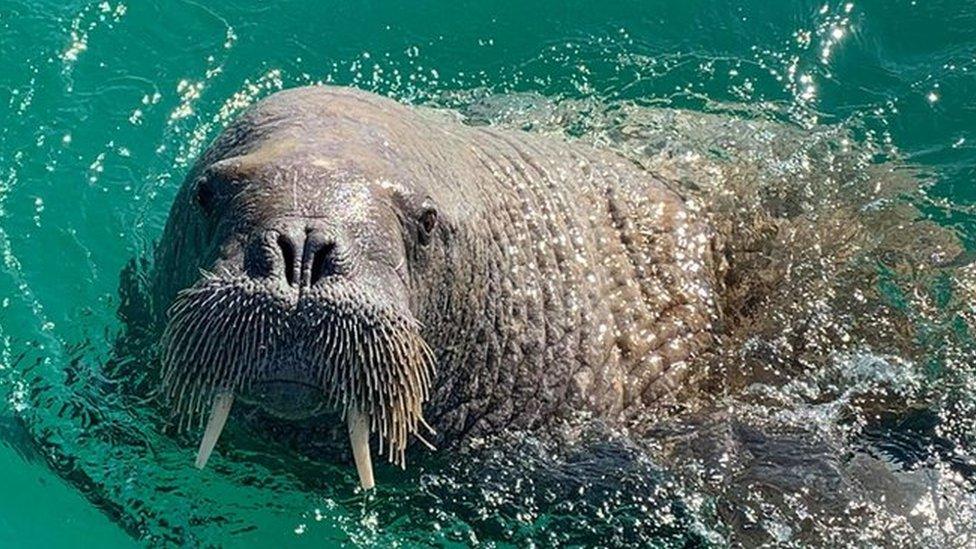
- Published18 June 2021
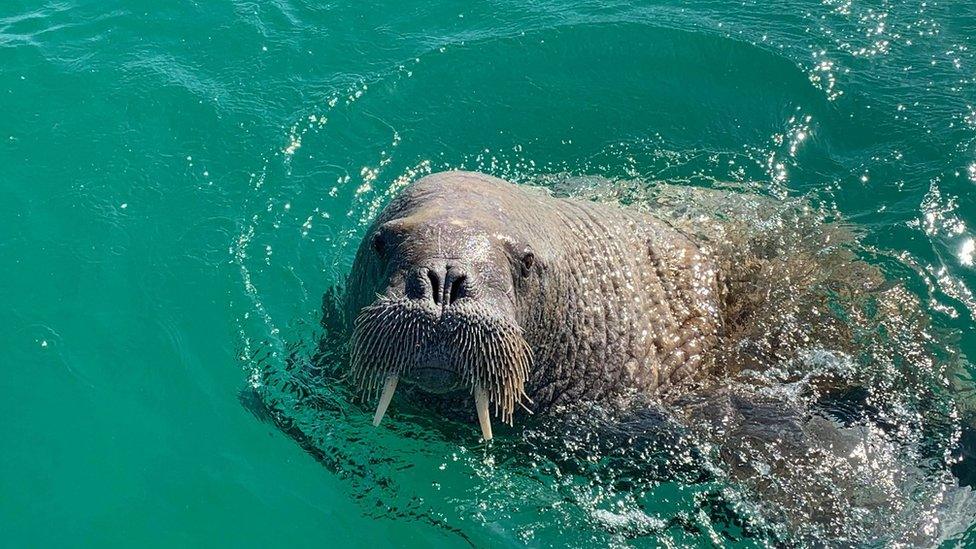
- Published28 May 2021
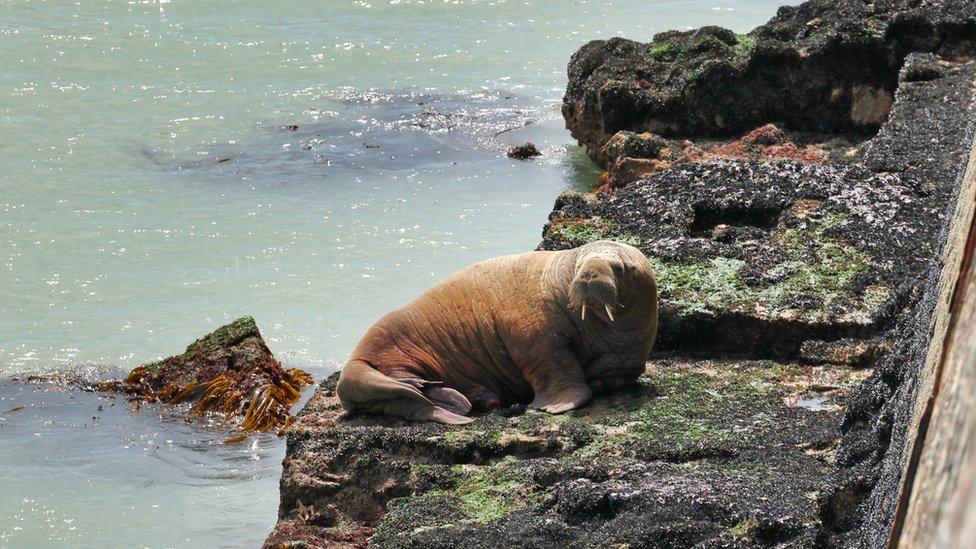
- Published21 May 2021
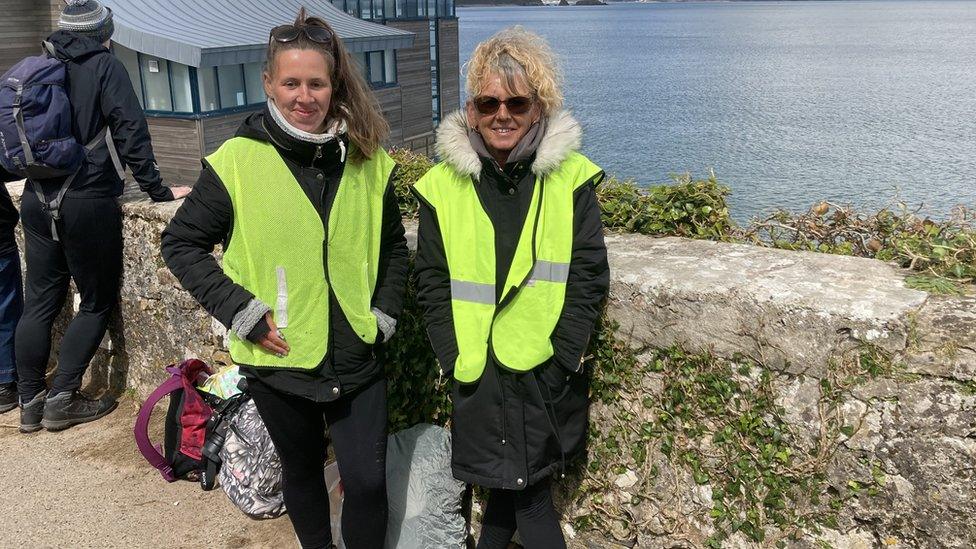
- Published20 May 2021
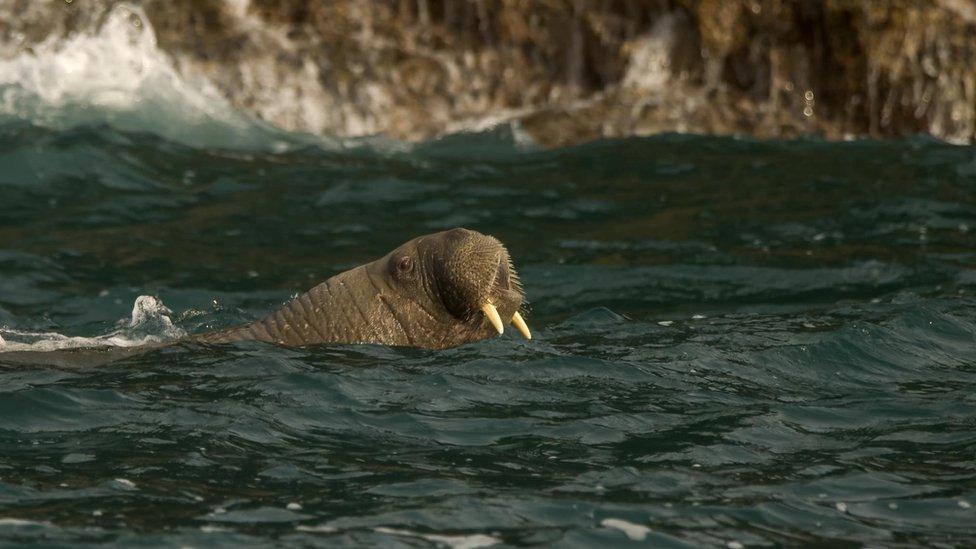
- Published15 March 2021
